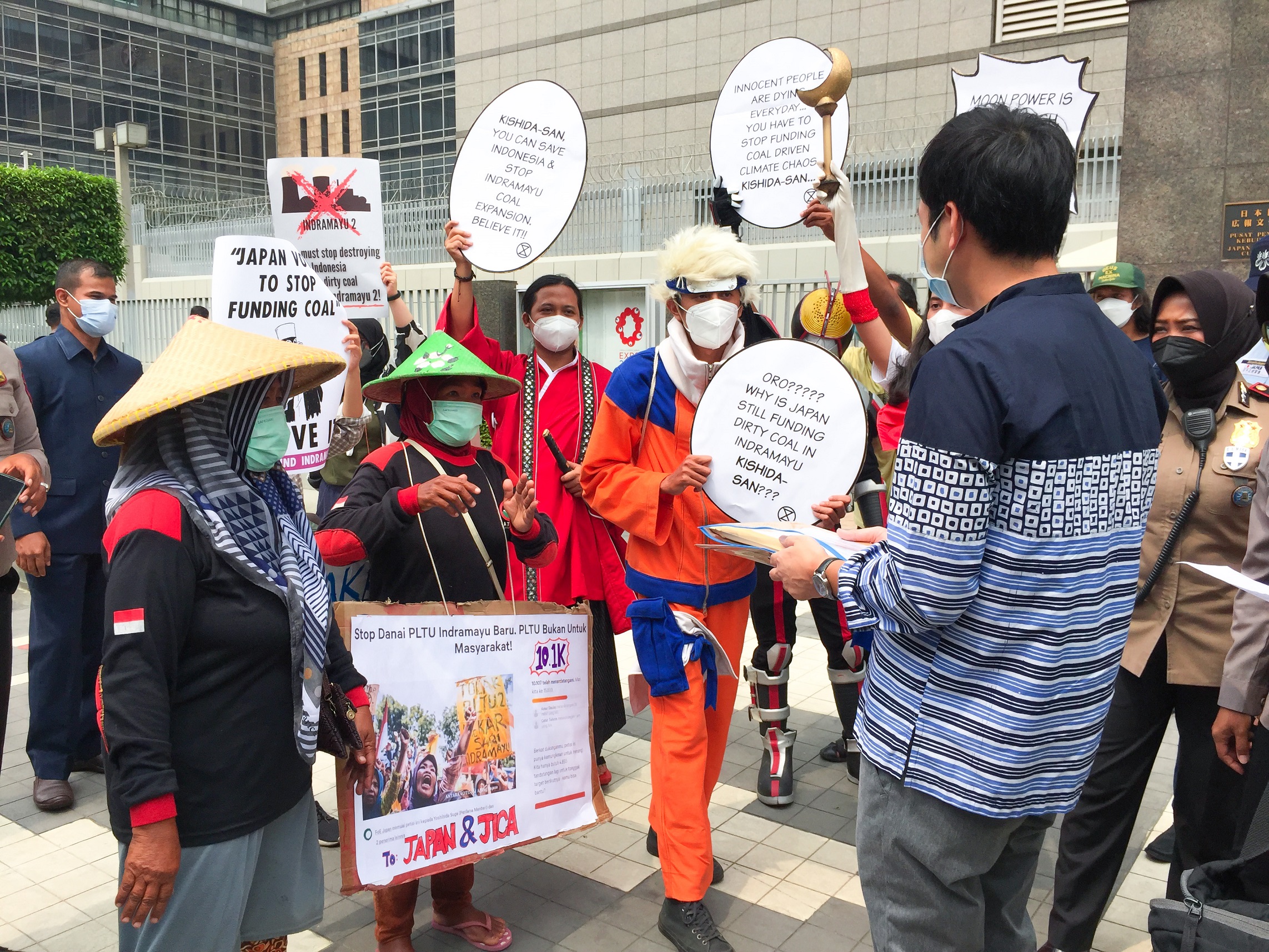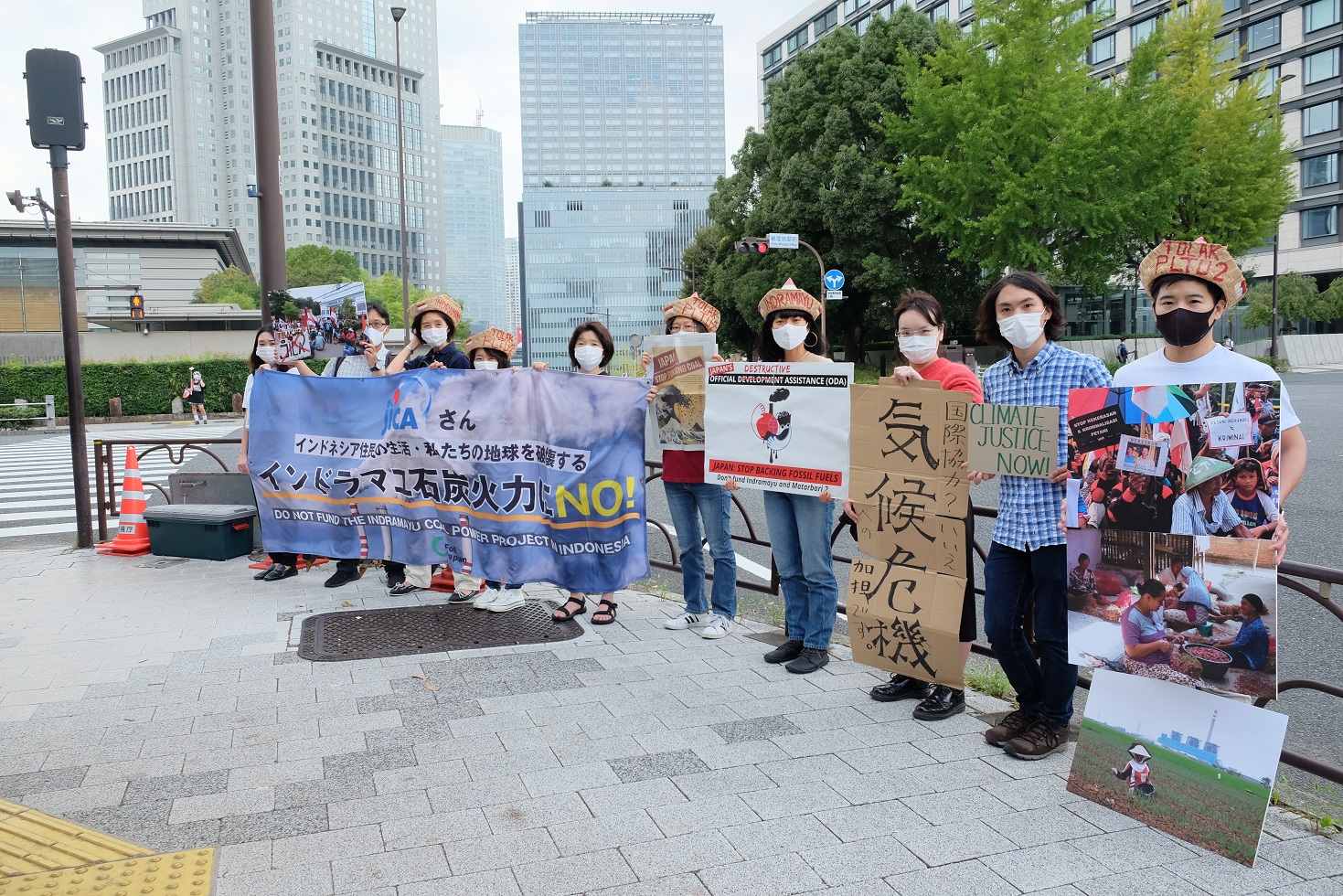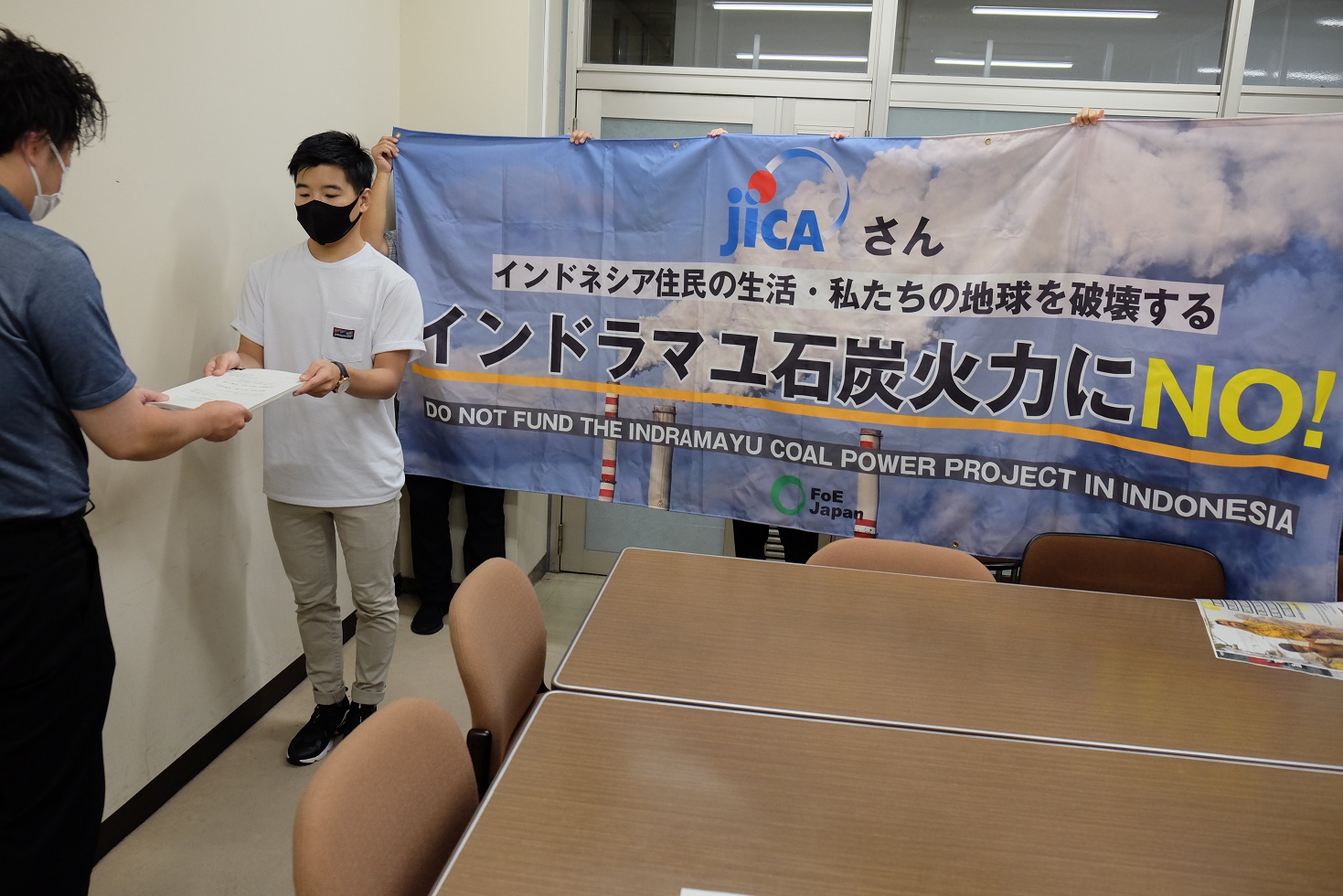JICA Must NOT Support Coal Plant in Indramayu, Indonesia!" CSOs Submitted the Petition to Japanese government (endorsed by 10860 Individuals from 114 Countries and 114 Organizations from 34 Countries) ahead of COP26



Please sign on the petition as we are still collecting more signatures!
> To sign on as an individual (via Change.org)
> To sign on as an organization
On October 6, Japanese CSOs submitted the petition (endorsed by 10860 individuals from 114 countries and 114 organizations from 34 countries) to the Japanese government and JICA, calling on them not to support the construction of the Indramayu coal-fired power plant in Indonesia. This aimed at urging Prime Minister KISHIDA Fumio to express a clear position that Japanese government stops all the public finance support for coal plants oversease without any loophole, ahead of COP26 starting from the end of October.
(Below is a text of the petition)
Mr. KISHIDA Fumio, Prime Minister
Mr. MOTEGI Toshimitsu, Minister for Foreign Affairs
Mr. KITAOKA Shinichi, President, Japan International Cooperation Agency (JICA)
Re: Japanese Government Must Not Support the Indramayu Coal-fired Power Plant Expansion Project in West Java, Indonesia
We are writing to call on the Japanese government and the Japan International Cooperation Agency (JICA) not to support the expansion of the Indramayu coal-fired power plant (1,000 MW) (hereinafter, the “Project”) in West Java, Indonesia.[1] The local community[2] as well as the international community[3] have long expressed concern and strong opposition to the Project.[4] There are mainly 6 reasons why this coal power plant must not be constructed as below;
(1) The Project will destroy or adversely affect the livelihoods of thousands of local farmers and fishermen because the power plant will be constructed in the middle of farmland and along the fishing grounds.[5] The tenants and day laborers have been growing their rice, vegetable and fruits all year long since their ancestors. When the season comes, the small-scale fishermen catch small shrimp called “rebon” along the coast. Monetary compensation and livelihood restoration programs, such as livestock-raising and skill-training, even if provided, are not sufficient to restore their livelihoods and thus not a true solution[6];
(2) The Project will expose the local community to a higher risk of health damage.[7] The power plant will not use any of the BAT (best available technology) that are installed in most of the coal-fired power power plants in Japan even though the power plant will emit air pollutants, including SOx, NOx and PM2.5[8];
(3) The Project has failed to ensure appropriate consultation and sufficient information disclosure with local farmers and fishermen. They will be heavily affected by the Project but were not invited for any consultation to prepare an Environment Impact Assessment (EIA) report.[9] Likewise, there was no appropriate participation by affected peasants in the planning of the Land Acquisition and Resettlement Action Plan (LARAP).[10] These defective processes are clearly illegal under the Indonesian laws[11] [12];
(4) The Project has caused serious human rights violations and has threatened the freedom of expression at the local level. Several farmers who have voiced opposition to the Project became victims of criminalization, or were accused of false charges and put in jail for 5 to 6 months.[13] According to the Indonesian law, the Indonesian government must protect farmers who try to protect the environment, but it failed to do so[14] [15];
(5) The Project is not necessary for the Java-Bali electrical grid which has been pointed out to have excessive power supply. The Indonesian government’s plan[16] also indicates that the reserve margin in the grid will be 30 to 45 % till 2028. Given the severe impact of COVID-19 on the economy, growth in electricity demand will also slow down. If the Project is pushed through with JICA’s loan, Indonesian state-owned electricity company Perusahaan Listrik Negara (PLN) or Indonesian government will have to repay this loan for decades for such unnecessary plant. This means an unreasonable burden on the future generations;
(6) The Project entails the risk of becoming a stranded asset[17] because it is necessary even for developing countries to completely stop the operation of coal-fired power plants by 2040 to achieve the Paris Agreement’s long-term goals.[18] It is obvious that the building of this power plant, even with high efficiency or ultra-super critical (USC) technology, is inconsistent with the Paris goals[19] and must not be allowed in order to tackle the climate crisis and make a credible transition toward a decarbonized society. Furthermore, if the Project is pushed through with JICA’s loan, PLN or the Indonesian government will have to pay back for decades for such stranded asset.This means an unreasonable burden on the future generations again.
The Project must not be pushed through at the expense of the livelihoods and environment of the local community, or in exchange for future generations’ opportunities and choices, and global climate. In addition, the Project does not align with the policies of the Japanese government and the JICA Guidelines for Environmental and Social Considerations (the Guidelines) as described in the footnotes. We strongly demand that the Japanese government and JICA not finance this coal plant for the Indramayu community and future generations in Indonesia and the world.
Cc: Mr. SUZUKI Shunichi, Minister of Finance
Mr. HAGIUDA Koichi, Minister of Economy, Trade and Industry
Mr. YAMAGUCHI Tsuyoshi, Minister of the Environment
Mr. MATSUNO Hirokazu, Chief Cabinet Secretary
Mr. ODAWARA Kiyoshi, State Minister for Foreign Affairs
Ms. SUZUKI Takako, State Minister for Foreign Affairs
Mr. ITO Wataru, State Minister of Finance
Mr. OHIE Satoshi, State Minister of Finance
Mr. HOSODA Kenichi, State Minister of Economy, Trade and Industry
Mr. ISHII Masahiro, State Minister of Economy, Trade and Industry
Mr. OHOKA Toshitaka, State Minister of the Environment
Mr. MUTAI Shunsuke, State Minister of the Environment
Mr. KANASUGI Kenji, Ambassador of Japan to Indonesia
INITIAL SIGNATORIES
Wahana Lingkungan Hidup Indonesia (WALHI – Friends of the Earth Indonesia)
WALHI West Java
Friends of the Earth Japan
350.org Japan
Japan Center for a Sustainable Environment and Society (JACSES)
Kiko Network, Japan
Mekong Watch, Japan
LIST OF Individual SIGNATORIES: 10860 from 114 countries
LIST OF Organizational SIGNATORIES: 114 from 34 countries (including the above initial signatories)
Contact:
Friends of the Earth Japan
1-21-9, Komone, Itabashi, Tokyo, 173-0037
Tel: 03-6909-5983 Fax: 03-6909-5986